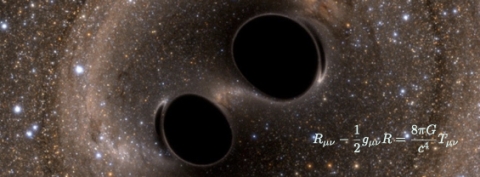MSCA-RISE Grant "Gravitational Universe: Challenges and Opportunities" awarded to an international network coordinated by the Physics Department

The Physics Department will lead an international network of Universities and Scientific Instititutions in the H2020-MSCA-RISE project Gravitational Universe: Challenges and Opportunities (GRU), coordcinated by Leonardo Gualtieri, associate professor in this Department.
The GRU Project, financed by the European Commission with 280 K€, will involve more than 70 faculties, postdocs and PhD students of Universities and Scientific Institutions from Italy (Sapienza, SISSA), France (CNRS) and Portugal (IST-Lisbon University). They will develop scientific collaborations through “secondments” (visits of one or more months) to Johns Hopkins University (USA), Caltech (USA), Perimeter Institute (Canada) and Rikkyo University (Japan). Moreover, international conferences, workshops and PhD schools will be organized to share knowledge within and outside the GRU community.
The aim of the GRU project is the exploitation of the new window on the strong-field regime of the gravitational interaction. The wealth of data coming from current and future gravitational wave detectors will provide an opportunity to challenge current paradigms, exploring fundamental physics from an entirely new perspective, eventually finding new physics. In this new observational window, we could learn that general relativity is not adequate to describe the strong-field regime of gravity; new fundamental fields beyond the standard model, or new kinds of compact objects, could challenge current understanding of dark matter and dark energy. In order to reach these results, the impressive experimental effort put in place will not be sufficient if not accompanied by a similar effort by the theoretical and the data-analysis communities.
Theoretical and conceptual problems need to be overcame before the new generation of detectors is operating. On one hand, we need to develop new data-analysis algorithms, to extract meaningful results from the impressive amount of data which will be delivered. On the other hand, we need to develop theoretical models of gravitational wave sources which do not assume the standard theories and paradigms which we want to test, in order to perform non-biased tests and to use observational results to address fundamental problems.
The accomplishment of these objectives in a time-scale compatible with the next generation of gravitational wave detectors requires a coordinated, interdisciplinary effort. Scientists with different expertise and addressing different issues – from data analysis to relativistic astrophysics, from mathematical physics to cosmology and high-energy physics - have to exchange their views and learn from each other’s problems. Moreover we need to raise a new generation of scientists which have been exposed to different views and problems. The GRU project, fostering long-term exchanges among groups with complementary backgrounds, will be instrumental to succeed in this challenge.
Authors
Leonardo Gualtieri
